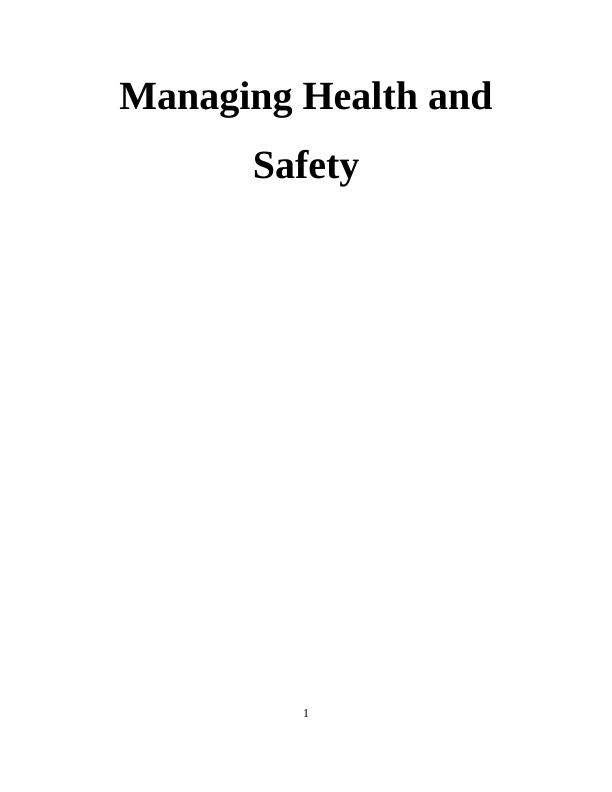In today's fast-paced construction industry, ensuring health and safety is paramount for companies like T-Mobile. As a leader in telecommunications infrastructure, T-Mobile has set a benchmark for managing health and safety standards in its construction projects. This article delves into how T-Mobile integrates safety protocols, leverages technology, and maintains compliance with industry regulations.
Construction sites are inherently risky environments, and T-Mobile understands the importance of prioritizing worker safety. By implementing robust safety measures, the company not only protects its workforce but also enhances project efficiency and reduces operational risks.
This article explores T-Mobile's strategies for managing health and safety in construction, offering valuable insights for businesses looking to improve their own safety practices. Whether you're a construction professional, safety expert, or business owner, this comprehensive guide provides actionable advice and best practices.
Read also:Nicole Scherzinger Rosemary Elikolani A Comprehensive Look Into Her Life Career And Achievements
Table of Contents
- Introduction to T-Mobile's Safety Approach
- Health and Safety Regulations in Construction
- T-Mobile's Key Safety Strategies
- Leveraging Technology for Safety Management
- Worker Training and Education
- Conducting Risk Assessments
- Emergency Preparedness and Response
- Monitoring Compliance and Continuous Improvement
- Success Stories: T-Mobile's Safety Milestones
- Future Directions in Safety Management
Introduction to T-Mobile's Safety Approach
T-Mobile's commitment to managing health and safety in construction is rooted in its corporate culture of responsibility and innovation. The company recognizes that safety is not just a regulatory requirement but a moral obligation to its employees and stakeholders.
Through strategic planning and investment in cutting-edge technologies, T-Mobile ensures that every construction project adheres to the highest safety standards. This proactive approach has earned the company recognition as an industry leader in safety management.
By prioritizing worker well-being, T-Mobile not only enhances productivity but also fosters a culture of trust and accountability within its teams. This section explores the foundational principles that guide T-Mobile's safety initiatives.
Health and Safety Regulations in Construction
Understanding OSHA Standards
The Occupational Safety and Health Administration (OSHA) sets the benchmark for safety regulations in the construction industry. T-Mobile adheres strictly to these standards, ensuring that all its projects comply with federal and state regulations.
Key OSHA regulations include:
- Personal Protective Equipment (PPE) requirements
- Hazard communication protocols
- Fall protection measures
By integrating these regulations into its operational framework, T-Mobile minimizes the risk of workplace accidents.
Read also:Emma Claire Edwards Tulane A Rising Star In The World Of Entertainment
State and Local Regulations
In addition to federal guidelines, T-Mobile also complies with state and local safety regulations. These regulations often vary depending on the location of the construction site, requiring T-Mobile to adopt a flexible yet rigorous approach to safety management.
For instance, certain regions may mandate additional safety measures for extreme weather conditions or specific environmental hazards. T-Mobile's safety teams are trained to adapt to these regional requirements, ensuring seamless compliance across all projects.
T-Mobile's Key Safety Strategies
T-Mobile employs a multifaceted approach to managing health and safety in construction. This section outlines the core strategies that underpin the company's safety initiatives.
One of T-Mobile's key strategies is the implementation of a comprehensive safety management system (SMS). This system integrates all aspects of safety planning, execution, and monitoring, providing a unified framework for managing risks.
Additionally, T-Mobile emphasizes the importance of worker empowerment, encouraging employees to take ownership of their safety practices. This participatory approach fosters a sense of responsibility and accountability among team members.
Leveraging Technology for Safety Management
Advanced Safety Monitoring Tools
T-Mobile invests heavily in technology to enhance its safety management capabilities. Advanced monitoring tools such as wearable devices and IoT sensors enable real-time tracking of worker conditions and environmental hazards.
These tools provide valuable insights into potential safety risks, allowing T-Mobile to take proactive measures to mitigate them. For example, wearable devices can alert workers to unsafe conditions, such as excessive heat or noise levels, enabling them to take immediate action.
Data-Driven Decision Making
Data analytics plays a crucial role in T-Mobile's safety management strategy. By analyzing safety data collected from various sources, the company can identify trends and patterns that inform its decision-making processes.
For instance, T-Mobile uses predictive analytics to forecast potential safety incidents, allowing it to implement preventive measures before accidents occur. This data-driven approach not only enhances safety but also improves operational efficiency.
Worker Training and Education
Comprehensive Training Programs
T-Mobile recognizes that well-trained workers are the backbone of a safe construction site. The company offers comprehensive training programs that cover a wide range of safety topics, from basic safety protocols to advanced risk management techniques.
Training sessions are conducted both in-person and online, ensuring that all employees have access to the necessary resources. T-Mobile also encourages continuous learning, providing opportunities for workers to enhance their skills and knowledge through ongoing education.
Certification and Accreditation
In addition to internal training, T-Mobile partners with recognized certification bodies to provide its employees with industry-standard qualifications. These certifications not only enhance worker competence but also demonstrate T-Mobile's commitment to maintaining high safety standards.
Employees who complete T-Mobile's training programs are awarded certifications that validate their expertise in safety management, further enhancing their professional credentials.
Conducting Risk Assessments
Risk assessment is a critical component of T-Mobile's safety management strategy. By systematically identifying and evaluating potential hazards, the company can develop effective mitigation plans.
T-Mobile employs a structured approach to risk assessment, involving multiple stakeholders in the process. This collaborative approach ensures that all potential risks are thoroughly evaluated and addressed.
The company also utilizes advanced risk assessment tools, such as hazard identification software, to enhance the accuracy and efficiency of its assessments. These tools enable T-Mobile to identify risks that may not be immediately apparent, ensuring comprehensive coverage of all potential hazards.
Emergency Preparedness and Response
Developing Emergency Plans
T-Mobile places a strong emphasis on emergency preparedness, recognizing that swift and effective responses can save lives and minimize damage. The company develops detailed emergency plans for each construction site, outlining procedures for various scenarios such as fires, natural disasters, and medical emergencies.
These plans are regularly reviewed and updated to ensure their relevance and effectiveness. T-Mobile also conducts regular emergency drills to familiarize workers with the procedures and ensure they are prepared to act quickly in the event of an actual emergency.
Building Resilience
In addition to emergency planning, T-Mobile focuses on building resilience within its teams. This involves fostering a culture of preparedness and adaptability, enabling workers to respond effectively to unexpected challenges.
Through resilience-building initiatives, T-Mobile empowers its employees to take proactive measures in emergencies, reducing the likelihood of accidents and enhancing overall safety outcomes.
Monitoring Compliance and Continuous Improvement
Regular Audits and Inspections
T-Mobile conducts regular audits and inspections to ensure compliance with safety regulations and internal policies. These audits involve thorough evaluations of safety practices, equipment, and procedures, identifying areas for improvement.
The company also encourages feedback from workers, using their insights to refine its safety management processes. This collaborative approach ensures that T-Mobile's safety initiatives remain aligned with the evolving needs of its workforce and industry standards.
Implementing Best Practices
T-Mobile is committed to continuous improvement in safety management. The company regularly reviews industry best practices and incorporates them into its operational framework, ensuring that its safety strategies remain at the forefront of innovation.
By staying abreast of the latest developments in safety technology and methodologies, T-Mobile maintains its position as a leader in construction safety management.
Success Stories: T-Mobile's Safety Milestones
T-Mobile's dedication to managing health and safety in construction has yielded numerous success stories. One notable achievement is the company's zero-accident record on several high-profile projects, demonstrating the effectiveness of its safety initiatives.
Another success story involves the implementation of a new safety monitoring system that significantly reduced workplace injuries. This system, which combines wearable technology with real-time data analytics, has become a model for other companies in the industry.
These milestones underscore T-Mobile's commitment to safety excellence and serve as inspiration for businesses striving to improve their own safety practices.
Future Directions in Safety Management
Looking ahead, T-Mobile is poised to further enhance its safety management capabilities through continued innovation and investment in technology. The company plans to expand its use of artificial intelligence and machine learning to predict and prevent safety incidents with even greater accuracy.
Additionally, T-Mobile aims to strengthen its partnerships with industry stakeholders, collaborating on initiatives that promote safety across the construction sector. By sharing knowledge and resources, T-Mobile hopes to drive industry-wide improvements in safety management.
As the construction industry evolves, T-Mobile remains committed to leading the charge in managing health and safety, ensuring the well-being of its workforce and the success of its projects.
Conclusion
In conclusion, T-Mobile's approach to managing health and safety in construction exemplifies best practices in the industry. By integrating robust safety protocols, leveraging cutting-edge technology, and fostering a culture of accountability, T-Mobile has set a standard for excellence in safety management.
We encourage readers to adopt similar strategies in their own organizations, prioritizing worker safety and operational efficiency. Your feedback and insights are invaluable to us, so please feel free to leave a comment or share this article with others who may benefit from it.
For more information on T-Mobile's safety initiatives or related topics, explore our other articles and resources. Together, let's build a safer and more sustainable future for the construction industry.

